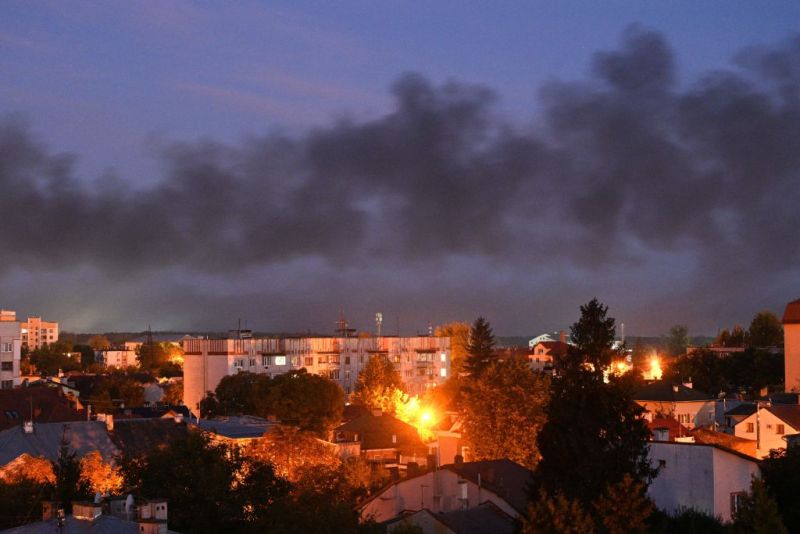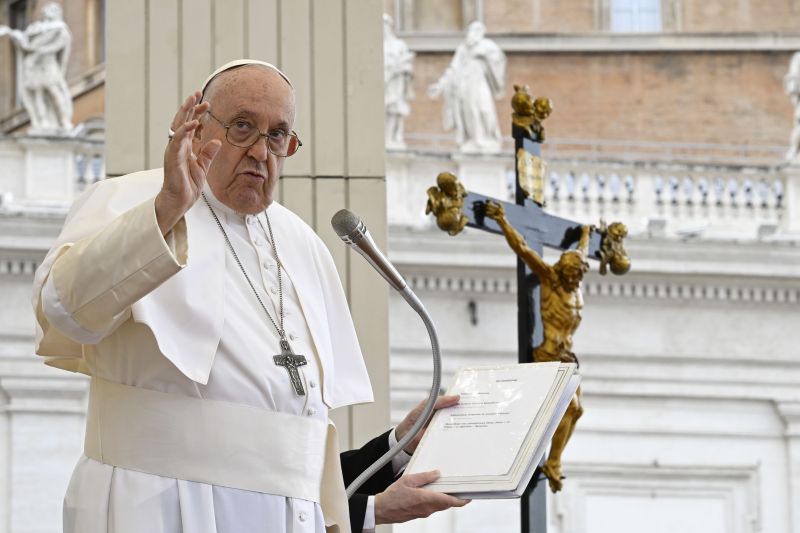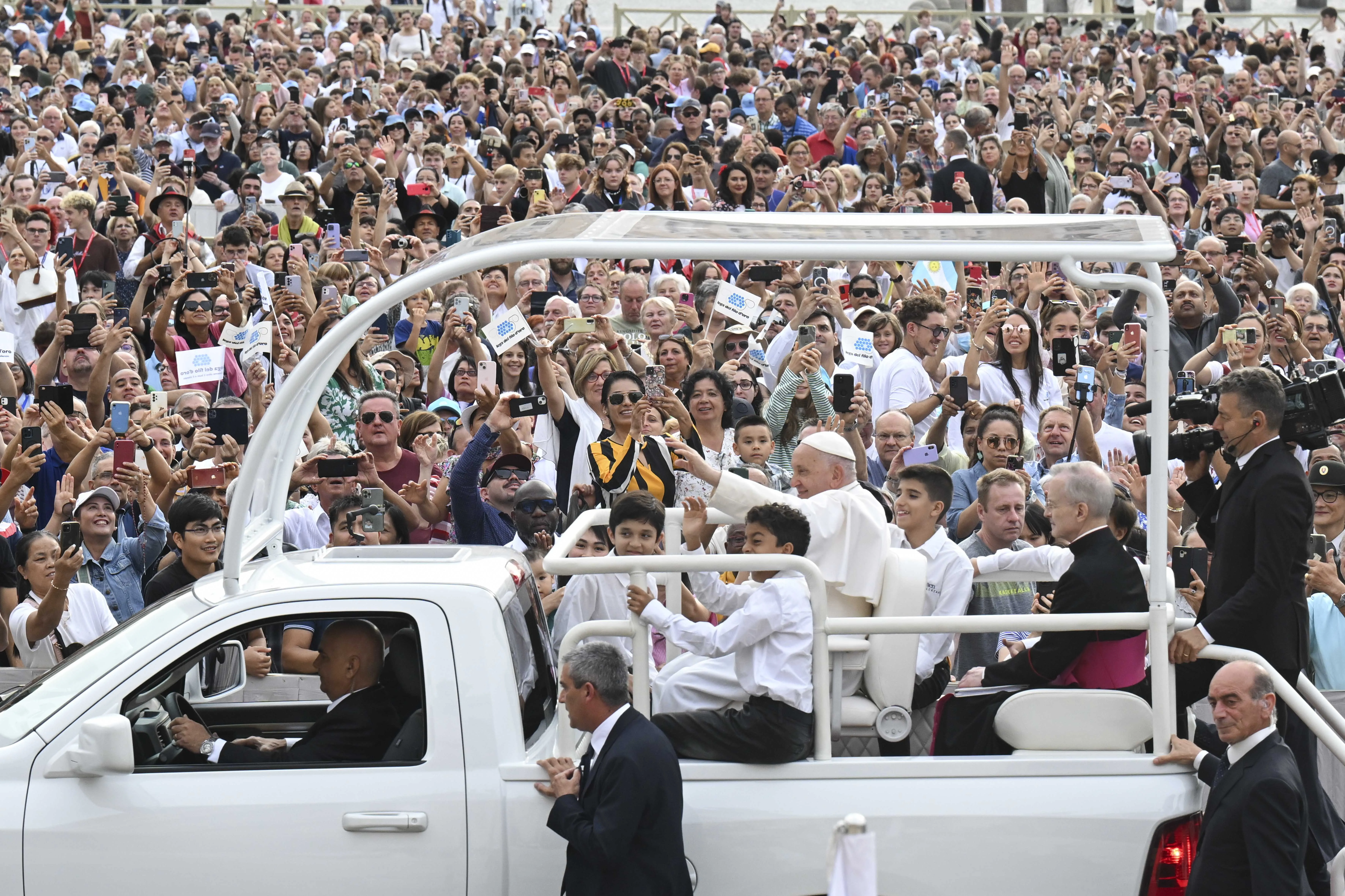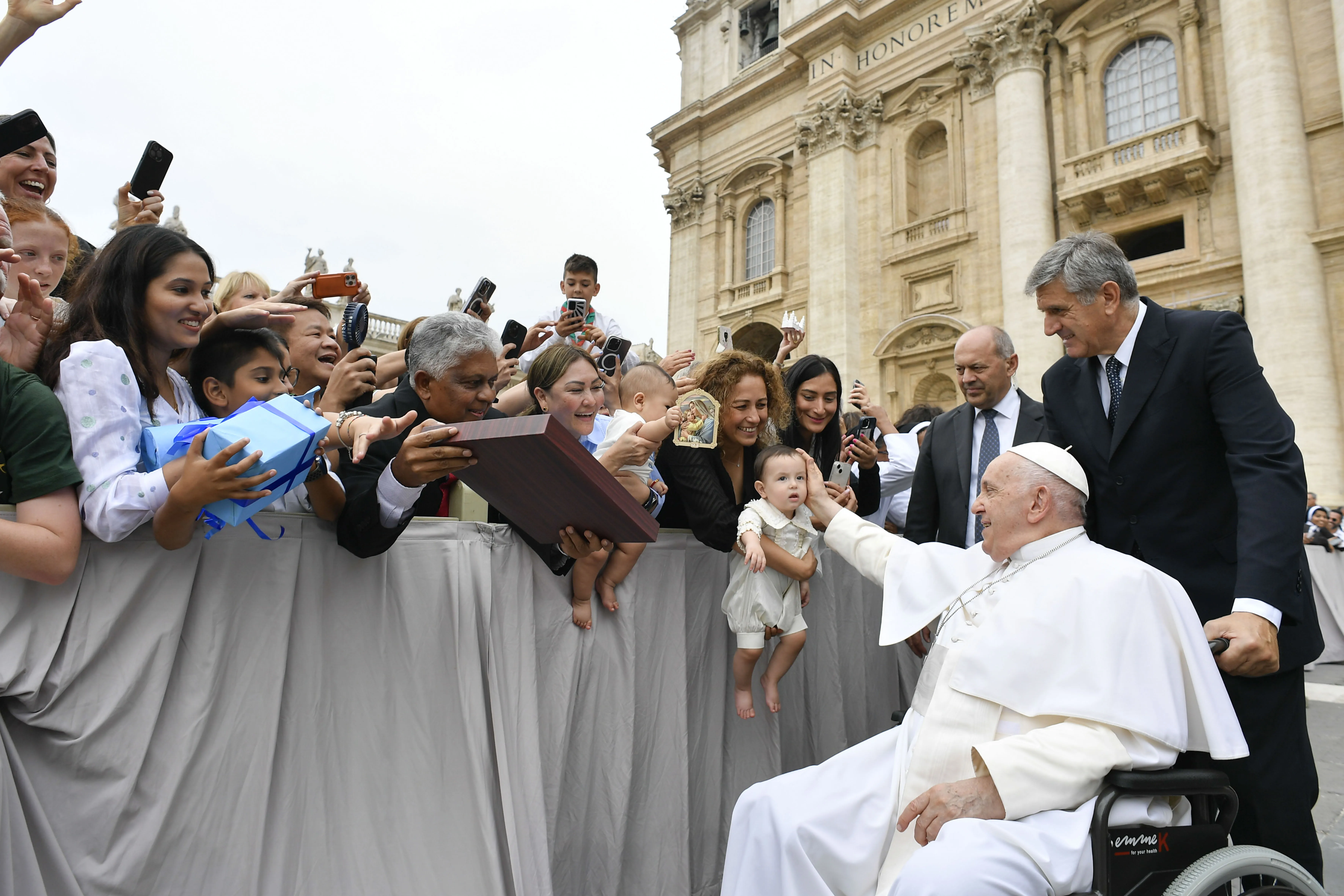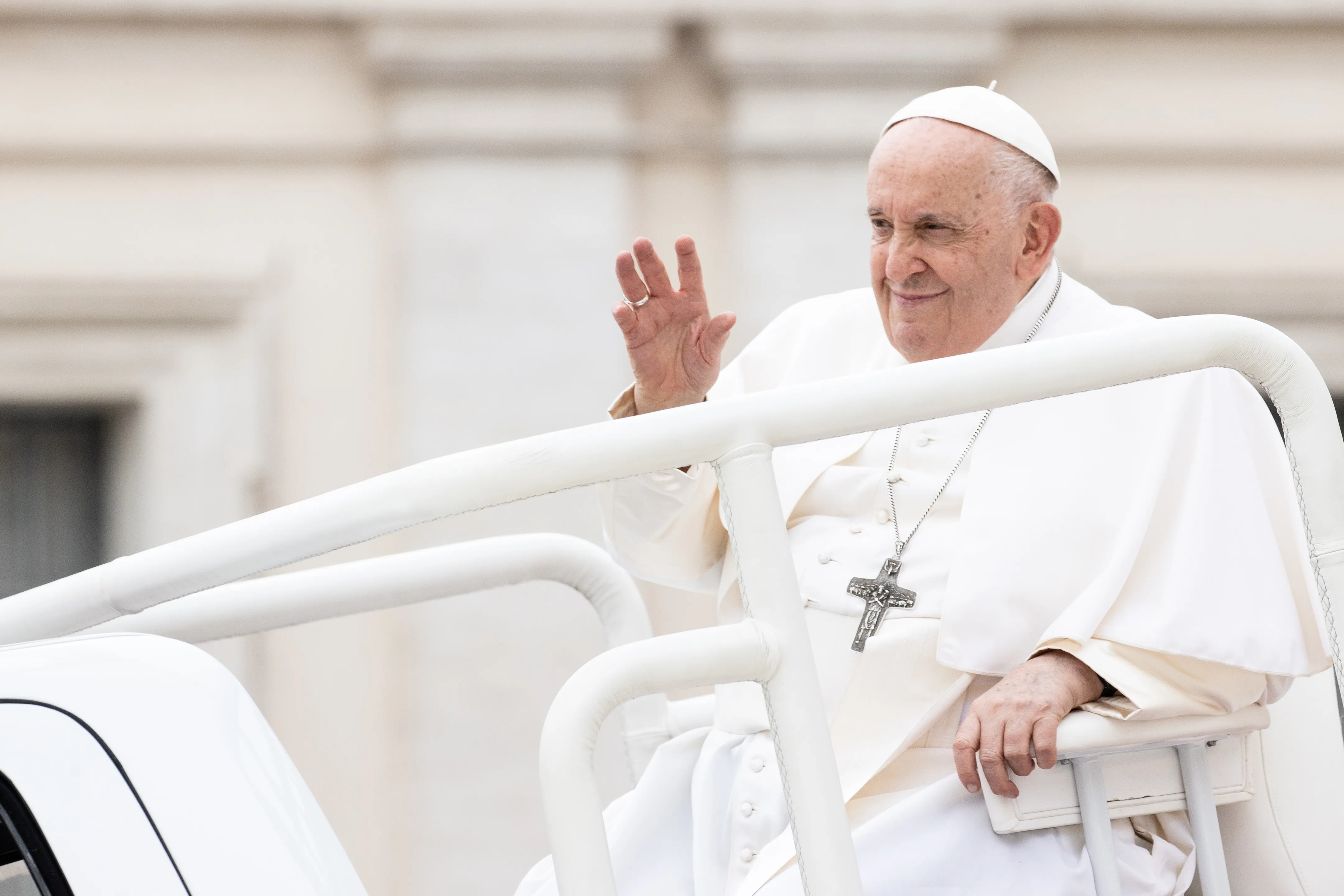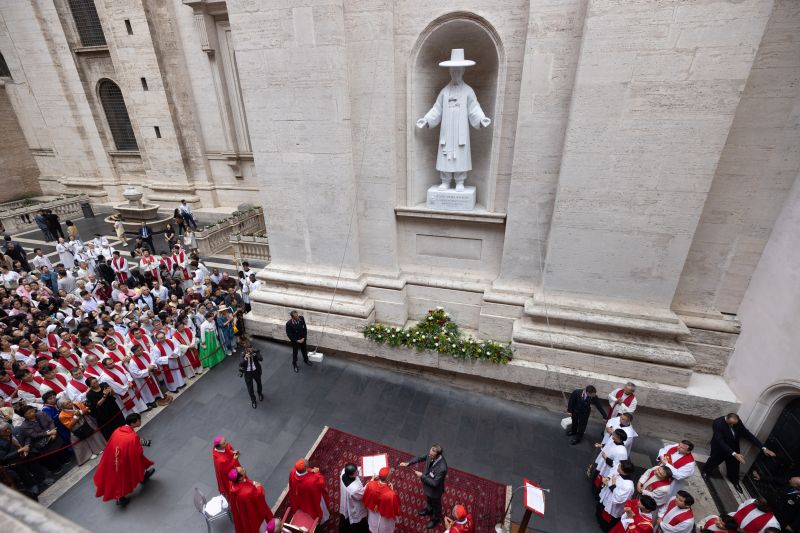 A new statue of St. Andrew Kim Tae-gŏn, a Korean martyr, was unveiled at St. Peter’s Basilica on Sept. 16, 2023. / Credit: Daniel Ibanez/CNA
A new statue of St. Andrew Kim Tae-gŏn, a Korean martyr, was unveiled at St. Peter’s Basilica on Sept. 16, 2023. / Credit: Daniel Ibanez/CNA
CNA Staff, Sep 20, 2023 / 04:00 am (CNA).
The feast of the Korean martyrs, celebrated by the Catholic Church on Sept. 20, remembers 103 men, women, and children who died for their faith in the first decades of Korean Christianity. The Korean martyrs marked on this day are collectively known as Sts. Andrew Kim Taegon, Paul Chong Hasang, and Companions. They were among the 8,000 to 10,000 Korean Christians killed for refusing to deny Christ.
Persecutions began in 1791, with five additional waves through the 19th century. Catholics in Korea celebrate the witness of their country’s Catholic martyrs throughout September, with celebrations culminating in the feast of the Korean martyrs.
They died for Christ
When Pope John Paul II canonized the Korean martyrs in his 1984 visit to South Korea, he noted their great diversity.
“From the 13-year-old Peter Yu to the 72-year-old Mark Chong, men and women, clergy and laity, rich and poor, ordinary people and nobles, many of them descendants of earlier unsung martyrs — they all gladly died for the sake of Christ,” he said in his homily for the May 6, 1984, canonization Mass in Seoul.
The martyrs commemorated on Sept. 20 include Korea’s first priest, St. Andrew Kim Taegon, and lay Catholic leader St. Paul Chong Hasang.
Kim was born in 1821 into an aristocratic Korean family that eventually included three generations of Catholic martyrs.
Kim’s great-grandfather died for his Catholic faith in 1814. While Kim attended seminary in China, his father was martyred for the faith in 1839. Kim was ordained in Shanghai in 1845 and returned to Korea to catechize Christians in secret. He was arrested 13 months later, tortured, and beheaded.
Paul Chong Hasang was a layman who helped unite Christians under persecution and encouraged them to be strong in the faith. His appeals to Pope Gregory X directly led the pope to recognize Korea’s Catholic community and to send more priests. Chong died by martyrdom in 1839 after penning a letter in prison defending the Catholic faith to the Korean government.
Another martyr, 17-year-old Agatha Yi, and her brother were falsely told that their parents had denied the faith. She responded: “Whether my parents betrayed or not is their affair. As for us, we cannot betray the Lord of heaven whom we have always served.”
Her words were reported widely and inspired six other adult Christians to report themselves to the magistrate. Yi, her parents, and these six are among those canonized.
Some of the first French missionaries to Korea are numbered among these Korean martyrs. There are many more to be recognized, and many forgotten by history.
“There are countless other unknown, humble martyrs who no less faithfully and bravely served the Lord,” John Paul II said in his canonization homily.
Korean Christianity’s unique history
Knowledge of Catholic Christianity arrived in Korea early in the 1600s, but not directly through missionaries. Rather, non-Christian Korean scholars learned about it through books. Some Koreans would become convinced Christians, but only in 1784 was the first Korean baptized after traveling to China to seek out Jesuit missionaries. It was these lay Christians who brought the Gospel to Korea and formed Catholic communities even without priests.
“In a most marvelous way, divine grace soon moved your scholarly ancestors first to an intellectual quest for the truth of God’s word and then to a living faith in the risen Savior,” Pope John Paul II commented in his 1984 canonization Mass homily. “From this good seed was born the first Christian community in Korea.”
Korean leaders, however, saw Christianity as a disruptive force that undermined hierarchical society and Confucian ideals of the political system. Some Christians openly renounced ancestor worship, which Korean society prized, according to UCA News. The Christian priority on God was perceived to be treason to the king, especially under the ruling Joseon dynasty. Some Korean Christians also turned to foreign powers to establish trade links and encourage religious freedom, actions that other Koreans found suspicious.
Hostility toward Christians turned violent multiple times.
As John Paul II said in 1984: “This fledgling Church, so young and yet so strong in faith, withstood wave after wave of fierce persecution … the years 1791, 1801, 1827, 1839, 1846, and 1866 are forever signed with the holy blood of your martyrs and engraved in your hearts.”
Other Korean martyrs have been beatified — and more are expected
Pope Francis beatified another 124 martyrs during his August 2014 visit to South Korea. These included Paul Yun Ji-chung, Korea’s first martyr.
In 2017, the Korean bishops announced they would begin an inquiry that could lead to the beatification of another 213 people, including some from the period of the Korean War in the mid-20th century. Candidates for beatification include the first bishop of Pyongyang; American born-Bishop Patrick Byrne; and numerous priests and laity. At the time of the announcement, the process was expected to take 10 years.
[…]


